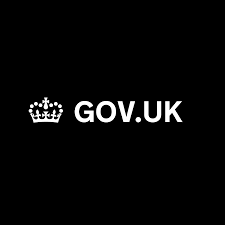 The government has confirmed that it will begin naming and shaming failing social housing landlords including on social media platforms.
The government has confirmed that it will begin naming and shaming failing social housing landlords including on social media platforms.
The Department for Levelling Up, Housing and Communities will highlight poor practice by landlords. This will include published findings by the Housing Ombudsman of severe maladministration, and judgements of the Regulator of Social Housing that consumer standards have been breached.
Where appropriate, the Secretary of State will contact landlords to understand how they are taking appropriate steps to address the Ombudsman’s and Regulator’s findings. All landlords are expected to self-refer breaches of standards to the Regulator of Social Housing. Where landlords have failed to self-refer and a breach is found, they will be contacted by ministers.
The government will share on social media all severe maladministration findings from the Housing Ombudsman Service.
The Housing Ombudsman is independent of government and impartially resolves disputes between tenants, leaseholders and their social landlords. The Ombudsman has 2,316 member landlords representing 4.7 million households. The Ombudsman’s Complaint Handling Code provides a framework for high-quality complaint handling to help landlords resolve complaints quickly and effectively.
When things cannot be resolved the Ombudsman can investigate and make orders or recommendations to put things right where mistakes have been made.
In 2020/21 the Ombudsman issued a total of 3,455 orders and recommendations following investigations and made awards of compensation totalling £450k.
As part of their decisions the Ombudsman can make findings of maladministration where they find that a landlord has failed to do something, done something it shouldn’t have or caused unreasonable delays. In the most serious cases, the Ombudsman can make a finding of Severe Maladministration, such cases are published on the Ombudsman’s website and shared with the Regulator of Social Housing. In these most serious cases residents have often experienced problems over an extended period and there have been missed opportunities by the landlord to resolve them. In recent times this has often included repairs, leaks, damp and mould.
The Ombudsman encourages senior management to review these cases. Several landlords have reviewed the processes to ensure these matters do not recur. This is part of the Ombudsman’s work to share learning from complaints to improve services for residents.
Landlords who have had a severe maladministration finding from the Housing Ombudsman since September 2021:
- London Borough of Lambeth, published 1 March 2022
- Homes for Haringey, published 15 February 2022
- Metropolitan Thames Valley, published 25 January 2022
- Great Yarmouth Borough Council, published 18 January 2022
- London Borough of Ealing, published 11 January 2022
- Anchor Hanover, published 30 November 2021
- Abri, published 18 November 2021
- Inquilab Housing Association, published 7 October 2021
- Golding Homes, published 29 September 2021
The Regulator sets consumer standards which set minimum expectations for all registered providers of social housing regarding the decency of tenants’ homes, the services they receive from their landlords and how landlords should treat their tenants. The Regulator currently has four consumer standards:
- The Home Standard
- The Tenancy Standard
- The Neighbourhood and Community Standard
- The Tenant Involvement and Empowerment Standard
The Regulator’s current remit on consumer regulation is reactive. This means they can consider information that they become aware of (either through self-referrals from landlords or referrals from third parties, including the Ombudsman) but cannot proactively monitor providers’ performance against the consumer standards.
The Regulator can also only use its powers in relation to a failure to meet a consumer standard if the ‘serious detriment’ test is met. This means that there are reasonable grounds to suspect that:
- A breach of the consumer standards has resulted in a serious detriment to the provider’s tenants (or potential tenants); or
- There is a significant risk that, if no action is taken by the Regulator, the failure will result in a serious detriment to the provider’s tenants (or potential tenants).
The Regulator publishes regulatory notices about breaches of the consumer standards by providers on its website which set out the reasons for its decision and the actions being taken as a result. It summarises lessons learned from all its consumer casework in its annual Consumer Regulation Review.
The government has committed to legislating to remove the ‘serious detriment’ test and enable the Regulator to introduce proactive consumer regulation and has published draft clauses to deliver this.
The government will also share on social media all breaches of the consumer standards published by the Regulator of Social Housing.
The Regulator also assesses landlords against its economic standards and is able to proactively regulate against these, seeking assurance from landlords that they are complying with the standards set out below:
- The Governance and Financial Viability Standard
- The Value for Money Standard
- The Rent Standard
Given the Regulator is able to proactively regulate against the economic standards already, government will be focusing its attention on breaches of the consumer standards. Providers are expected to continue to comply with all of the regulatory standards.


I wonder if Shelter might start taking an interest when Government starts doing this. So far their performance on poorly performing social landlords is nothing short of dismal.
You must be logged in to like or dislike this comments.
Click to login
Don't have an account? Click here to register
Surely providing a public, national database of rouge landlords would be a better option?
You must be logged in to like or dislike this comments.
Click to login
Don't have an account? Click here to register
Agreed, provided there is a similar national database of rogue tenants.
You must be logged in to like or dislike this comments.
Click to login
Don't have an account? Click here to register